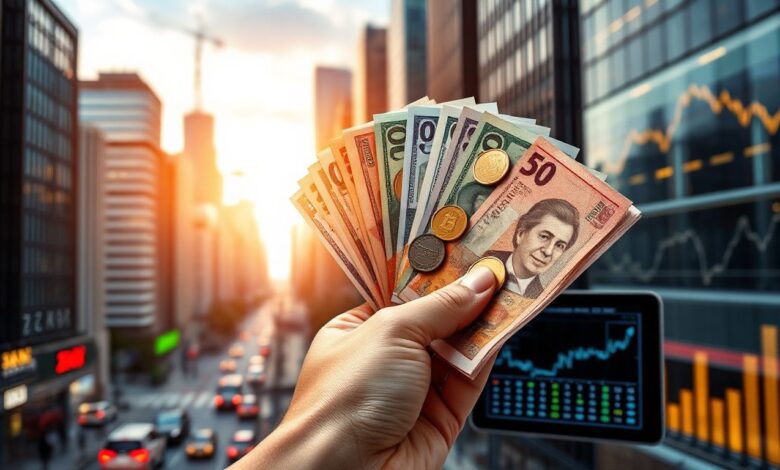More Than Just Paper: Why Money Matters

Money isn’t just pieces of paper or digital numbers in a bank account. It’s a vital part of how we live, work, and connect with others. While most people see money as a way to buy things, its impact runs much deeper. It influences your happiness, your security, and your society’s future. Understanding why money matters can help you make smarter choices and build a healthier economy.
The Psychological and Emotional Impact of Money
The Relationship Between Money and Happiness
Many believe that more money equals more happiness. But research shows there’s more to the story. While financial stability does boost life satisfaction, having too much wealth doesn’t always mean more joy. Once basic needs are covered, extra money won’t necessarily make you happier. Finding the right balance matters more than chasing after endless wealth.
Money and Stress: The Silent Economy Killers
Money worries can silently harm your health. Financial stress can lead to anxiety, sleepless nights, and even physical health issues like high blood pressure. Recent studies reveal that nearly 70% of adults feel stressed about their finances. When money becomes a constant source of anxiety, it impacts work, relationships, and overall happiness.
Building a Healthy Money Mindset
Creating a positive attitude about money starts with small steps. Set clear financial goals, track your spending, and educate yourself about money management. Mindful spending helps you avoid impulse buys. Remember, becoming financially literate empowers you to take control of your future.
Money’s Role in Personal and Family Security
Financial Planning for Future Stability
Planning ahead is crucial. Building an emergency fund can save you during tough times. Also, insurance and retirement plans protect your loved ones and ensure you’re prepared for the future. For example, families who prepared wisely weathered economic downturns better, avoiding financial disaster and stress.
Education and Wealth Building
Investing in education is one of the best ways to grow personal wealth. A good education opens doors to better jobs and higher earnings. Starting savings early and taking advantage of grants or scholarships can give you a head start in building long-term wealth.
Protecting Your Wealth
Managing debt wisely and avoiding scams are key. Pay off high-interest debts first and stay alert for fraudulent schemes. Expert advice suggests diversifying investments and avoiding get-rich-quick plans. Protecting what you have is just as important as earning more.
Money in the Broader Economy
The Power of Currency in Global Trade
Money makes international trade possible. It simplifies buying and selling across borders. The US dollar, for instance, acts as the main reserve currency worldwide. This status boosts America’s economy, but also shapes the global market.
Financial Systems and Stability
Banks, credit cards, and governments’ monetary policies keep economies running smoothly. When these systems fail, crises happen. The 2008 recession proved how fragile financial systems can be. Learning from these moments helps prevent future economic shocks.
Economic Inequality and Social Impact
Wealth gaps are growing around the world. The richest 1% own more than half of the world’s wealth. This imbalance can cause social unrest and stifle growth. Fair and equal distribution of money supports stronger communities and fairer societies.
Ethical and Responsible Money Management
The Rise of Ethical Investing
More investors look at a company’s impact before putting money in. This is called ESG — Environmental, Social, and Governance criteria. Companies leading in responsible practices include those reducing pollution and supporting fair labor. Investing in these companies helps build a better future.
Consumer Power and Financial Influence
Your buying choices influence companies’ actions. Supporting local businesses or eco-friendly brands encourages positive change. Being a responsible consumer means thinking about how your spending impacts the world.
Philanthropy and Giving Back
Investing some of your money in charity or community projects makes a difference. Many wealthy individuals donate to causes they care about, improving lives and environments. Giving back creates positive cycles of growth and hope.
Future of Money: Digital Innovation and Its Implications
The Shift to Digital Currencies
Cryptocurrencies and digital currencies from banks are changing how we handle money. They make transactions faster and more secure, but also come with risks like hacking or scams. Understanding these changes can help you prepare for what’s next.
Financial Technology (FinTech) Revolution
Apps for mobile banking, lending, and investing are transforming finance. These tools make managing money more accessible for everyone. Whether it’s a robo-advisor or peer-to-peer lending, technology is opening new doors.
Preparing for a Cashless Society
More businesses accept digital payments, and cash is slowly disappearing. To stay ahead, consider using secure payment methods and protecting your digital info. Adapting now will help you stay connected in a changing financial world.
Money is not just paper or digits—it shapes our lives and society. It influences happiness, security, and social fairness. Managing your finances responsibly, investing ethically, and staying open to new payment methods can make a real difference. The future belongs to those who understand the multifaceted nature of money. Educate yourself, spend wisely, and embrace innovation to ensure that money works to create a better world for everyone.
Source link




